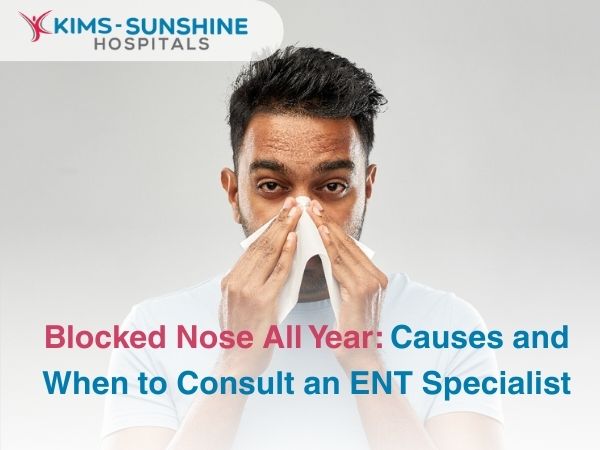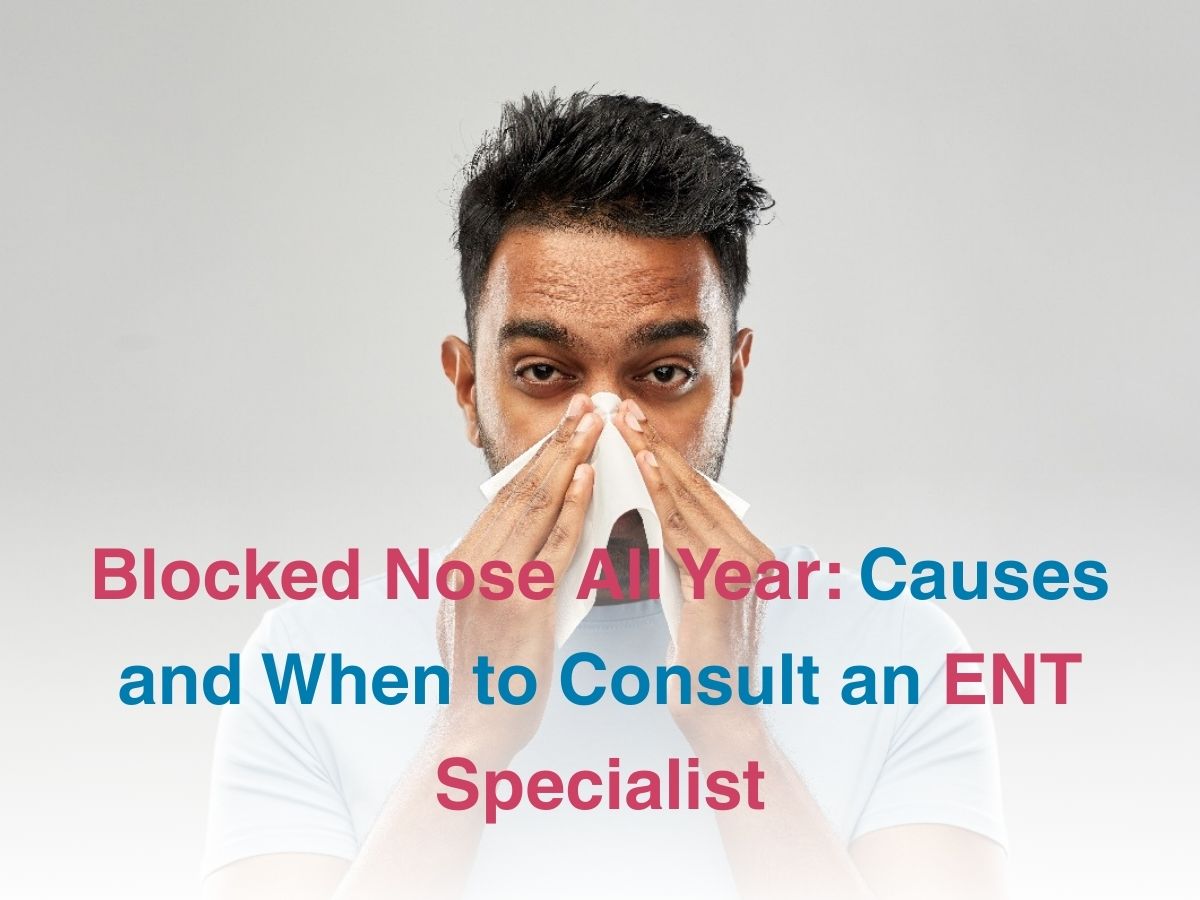
Blocked Nose All Year: Causes and When to Consult an ENT Specialist
How Can I Tell Allergy Rhinitis From Chronic Sinusitis?
Allergic rhinitis and sinusitis both lock the nose in congestion but the way they show up can be telling, for allergic rhinitis often walks in with watery discharge, itchy eyes, repeated sneezing and an almost instant worsening whenever one encounters dust, pets, or strong odours, while chronic sinusitis behaves differently – turning into a drawn-out heaviness across the cheeks or forehead, thick and stubborn mucus that refuses to clear, reduced smell and taste and is often accompanied with fatigue that lingers because breathing never feels effortless. Although both conditions overlap in their discomfort, allergy tends to be more reactive and episodic while sinusitis is slow, stubborn and unyielding and only a careful ENT evaluation can truly separate the two.
Could A Deviated Septum Or Enlarged Turbinates Be The Reason?
Sometimes the reason for a nose that feels blocked all year has nothing to do with infection or allergy but with anatomy itself, as in the case of a deviated septum where the thin wall dividing the nostrils tilts to one side, narrowing airflow in a way that might be mild in some people. Then there are turbinates – the delicate ridges inside the nose meant to filter and warm air, which, when swollen or enlarged, can create a near-permanent blockade that feels as though someone has shut a door inside the nasal passages. So, surgical options like septoplasty or turbinate reduction are not drastic but rather restorative interventions that simply give the nose back its natural function.
When Should I Consult An ENT Specialist For A Blocked Nose?
year-round companion – interfering with sleep, exercise, or even simple conversations, that is when an ENT specialist should enter the picture, because persistent blockage can mean not only reduced quality of life but also complications like repeated sinus infections, mouth breathing leading to dry throat and bad breath, or even sleep apnoea in some cases. In the Indian context where self-medication and over-the-counter nasal drops are often tried endlessly, people sometimes delay getting checked for far too long, not realising that prolonged blockage can even reshape nasal tissues or worsen existing structural problems. Professional evaluation is key, using tools like nasal endoscopy or scans to finally reveal what the naked eye and endless home remedies cannot.
Are Steroid Nasal Sprays Safe For Long Term Use And How To Use Them Right?
Steroid nasal sprays are often viewed with hesitation because of the word “steroid,” but are in fact one of the safest and most effective treatments for chronic nasal inflammation, as they work locally in the passages with minimal absorption into the rest of the body. When used properly- aimed outward in the nostril to avoid irritating the septum, taken consistently at the prescribed dose and reviewed regularly by a doctor- it can dramatically reduce congestion and improve breathing without the risks associated with systemic steroids, although misuse or overuse without medical guidance can cause dryness, irritation, or occasional nosebleeds. This is why the correct technique and regular follow-up are as important as taking the medicine itself.
Conclusion
A nose that stays blocked all year long is not merely an inconvenience but a sign that the body is signalling for deeper attention. Whether the reason is allergic rhinitis, chronic sinusitis, structural narrowing, or growths like nasal polyps – each carries its own pathway of diagnosis and treatment, some managed with medicines, sprays, or lifestyle adjustments and others requiring minor surgical interventions that restore the simple joy of free breathing. In cities where pollution, dust, and climate swings add to the burden, ignoring a chronically blocked nose is never wise and consulting an ENT specialist is not about overreacting but about reclaiming quality of life and better sleep, in the long run.







